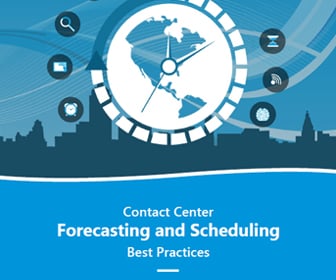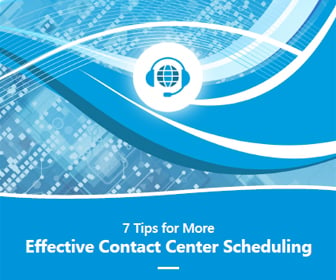Workforce Management Featured Article
Proper Onboarding Practices Can Help Reduce Turnover in the Call Center Space

Turnover rates among contact center agents have historically been high, with poor attrition just accepted as one of the costs of the industry. A bad onboarding experience is too often the root cause of this turnover, but also presents a prime opportunity to turn things around and get new hires to stay on the job.
Onboarding is a critical part of the hiring process and is often a turning point for new employees. According to Amy Hirsh Robinson, principal of The Interchange Group, the onboarding process can help new employees feel engaged and excited about their new positions.
“Onboarding is a magic moment when new employees decide to stay engaged or become disengaged," said Robinson. "It offers an imprinting window when you can make an impression that stays with new employees for the duration of their careers.”
There are a number of considerations call centers and other types of businesses need to take to ensure a successful onboarding process. The first is to concentrate on culture and connection with their new hires. This ensures employees feel like they are part of the team and understand the company's mission and goals. As part of this effort, businesses can send new hires company products, welcome notes and other information about the company to get them excited before they start the job.
Hiring managers can also set up meetings and introductions with other staff members to promote socialization, as well as to encourage an open dialog and communications as soon as new hires accept the position. Establishing a buddy system will also facilitate camaraderie by matching a new hire with an established employee, while also ensuring the new person has someone to go to with questions and concerns.
Another important part of the onboarding process is ensuring new hires are setup and well versed on all the technology platforms they will be using. Call centers, particularly, may have lots of new technology that can be overwhelming to a new agent. Managers should make sure new hires are teamed with IT personnel on the first day of the job. This ensures a qualified expert can walk the new employee through all technologies while making sure security objectives are also met. As a followup, managers can arrange for more extensive training during the first week to get new hires comfortable on technology platforms.
Managers can also give new agents practice tasks to facilitate communications within their immediate team as well as with other teams throughout the company. New hires should be trained on communication practices and culture at the business to ensure they understand which channels may be used for certain types of communications.
Goals and guidelines should be clearly defined as another important part of the onboarding process. This includes an upfront discussion about new agents' personal goals and how they can attain them. Managers can also set up goals and milestones for agents to achieve throughout the onboarding process and beyond. This provides new hires with clear objectives and realistic expectations about how to meet them. Once agents begin interacting with customers, they can be provided with performance data and metrics so they may better understand how they're doing and which areas they may need to focus on or improve.
Finally, managers should ensure plenty of time for learning, discussion, questions and feedback during the onboarding process. Setting up specific times for one-on-one discussions and training with new agents will ensure they are engaged and understand what is expected of them. Managers should also be sure to provide consistent feedback to new hires during the onboarding process for both positive reinforcement as well as to pinpoint areas that need work.
New hires can also be given a survey during the onboarding process to provide valuable feedback to managers and HR teams. This will ensure the entire onboarding process is working as planned and help gauge how engaged and happy new hires may be. Ultimately, the process will help improve attrition rates and ensure new hires stick around for the long haul.
Edited by Luke Bellos







